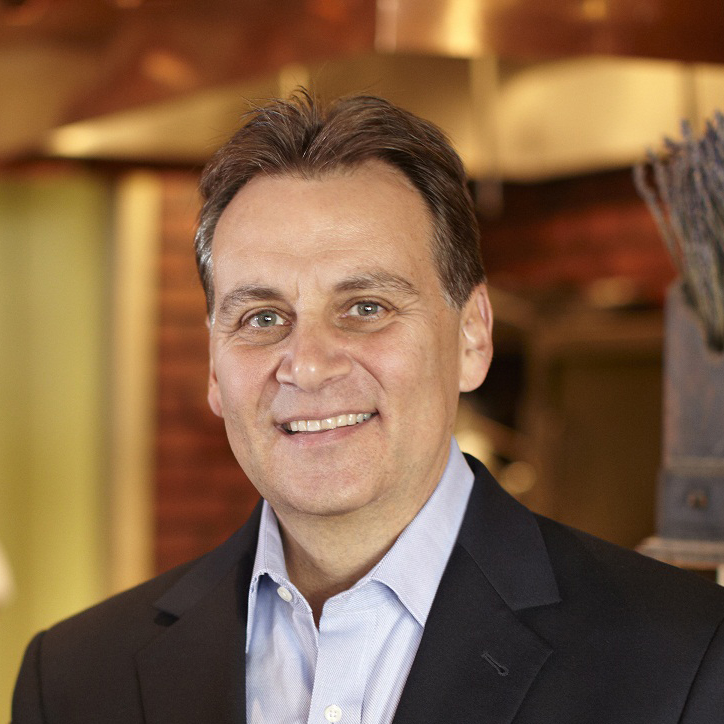Embracing an Enlightened Approach to Hospitality


A BHR Interview with Richard Coraine,
Cofounder of Union Square Hospitality Group.
How do you define hospitality?
Hospitality is so much more than an industry. Although many people describe it as hotels and restaurants, I believe those perceptions are rooted in the past. I think there’s an important opportunity to redefine the concept.
Hospitality is a way of doing business. If you look at that as a proposition, then any company that is customer-facing could be considered part of the hospitality industry. For USHG, this is where we work hard to differentiate ourselves. For us, hospitality is a verb. It’s an action word. It’s a proactive approach to making somebody feel like they matter – and making them feel like you appreciate them coming into your care. We also consider “welcome” the most powerful word in hospitality because it can’t be misunderstood. It’s a feeling. It’s the gestures people display and the words they use. And to me, hospitality is a place in your heart that has unlimited capacity to give to others. It’s part of who you are.
At USHG, we put an exclamation point at the end of the word welcome! We amplify it and use it as a verb. An interesting thing about the etymology of an exclamation point is that many years ago it started out as a dotted “i” with an “o” next to it. Over time, the “i” went over the “o” and then evolved to the bar with the dot underneath. And “io” in Latin means “joy.” We should all be exuding joy when we welcome. It’s the first way we can show somebody they matter, and we care. In a real sense, our employees are our exclamation points.
How does USHG’s concept of “Enlightened Hospitality” fit into your definition?
Enlightened Hospitality is our way of prioritizing our stakeholders. For us, it always starts with our people. It’s part of our culture. If you are establishing a culture of care in your organization, then you need people predisposed to be natural caregivers. Our people are our ultimate brand representatives. They are the face and voice of our brand. That’s why we want our team to be comprised of 100 percenters – people who feel good by making others feel good. And they’re also great at the technical skills necessary to contribute to the cycle of care we provide our guests.
People are not machines, and I think business owners are starting to see this. USHG changed that paradigm many years ago when Danny Meyer said everyone is getting two days off in a row. The logic was if you are somebody who gives to others, and you’re tired and working your sixth day and 14th hour, you’re out of gas. How can you possibly share your joy with somebody if you’re exhausted? What we try to do is put people in a position where they can give their best, always. And that means looking at them as human beings first and professionals second.
In addition to our people, we consider our guests, our suppliers, our communities, and our investors all critical stakeholders who command the same level of hospitality. To be successful, there are two key elements you must make sure are always working in tandem – economic and emotional prosperity. This applies to everyone. Part of demonstrating hospitality is making sure, from every perspective, you are providing a rewarding experience that makes people feel valued.
What would you tell skeptics who might question embracing hospitality as an approach to business?
This is the definitive top-line initiative. And your bottom line is directly related to the top line. The ROI is you will have people who come back to your business repeatedly based on how you treat them and how you make them feel. You’ll have less turnover because you care about the people you hire. You won’t always change vendors because you’re building strong and meaningful relationships with them. When you adopt this strategy, you’re solidifying your business by being cognizant of your behavior and extending hospitality to all your stakeholders. The result is a more profitable bottom line and a more durable brand.
There’s also tremendous power in thoughtful gestures. If you have consistent, thoughtful gestures by everyone on your team, using their heart, brain, and courage, you’re building a culture of care. You’re embodying hospitality as a verb. You are a walking exclamation point.
What is a Hospitality Quotient?
Hospitality Quotient is a learning and collaboration business. Interestingly, we don’t consider it a consulting service. It’s not prescriptive in nature. We share how we do things. Here’s how we look at the world. Here’s what hospitality as a business mindset looks like. And we believe the principles we operate with, under Enlightened Hospitality, apply in any industry with a customer-facing proposition. We’ve had some amazing collaborations and clients ranging from airlines to hotels to automotive companies to financial services, to retail to healthcare, and beyond.
One of the concepts that’s most important to us is essentiality. Say you go to Union Square Cafe tonight. You just chose us over 12,000 other options. First, thank you! We just won a huge popularity contest because we made the top of your list with all those choices. If you return a second time in a month or two, I will beat out that whole group again. If you come a third time, we’ve gotten you to a point where you “want” to be there because of how the experience makes you feel. This is hospitality in action as a business strategy. When you practice Enlightened Hospitality in a natural and intuitive way, you are creating positive and memorable experiences. You’re demonstrating your key constituents matter to you personally. And that makes good business sense. We are driven by emotion, and feeling valued and cared for fosters productivity, trust, and growth.
How does customer loyalty factor into hospitality?
It all comes down to recognition and appreciation. The relationship with someone to become essential to them passes through three filters. The first is, do you know me? The second filter is, how do you show me you know me? The third is, how do you show me you care about me? If you’re doing all three of those things, that’s the ultimate loyalty program because guests are not just a transaction. To me, a customer is a statistic, but a guest is a relationship. We look at people as guests, and that puts us in the host mindset, which is why we put the welcome mat out metaphorically in the first place. We welcome you in and once you’re in, you’re under our care.
What advice do you have for other hospitality leaders?
Everyone is in a relationship waiting to happen. And it’s not just guests. Do you make your staff feel like they matter? Gratitude is the ultimate fuel for performance. It shouldn’t be limited to once a year in the context of a review. There are small moments in which you can express recognition and praise – to all your stakeholders. “I saw what you did, and I appreciate it.” Gestures of gratitude are the fertilizer of a culture of care. If you can create a business model where people find it essential to be part of your community and you are continually making them feel valued with gratitude, it’s scalable, it’s a heck of a lot of fun, and you make amazing relationships that are life-changing.
The other thing I think essential to focus on is the concept of transfer of care. The most successful companies have mastered this. It’s making sure there’s continuity along the guest journey at all the touchpoints. But it goes beyond that. It means the experience is exceptional at the starting point and stays that way or gets even better at every point of engagement. The companies that do this well look closely at what’s happening between interactions.
We do have an opportunity to not only redefine hospitality but do so by employing it as a business strategy, as a way of gaining a competitive advantage, and by incorporating it into any industry that cares about its guests. All by making sure people know they matter. All by building relationships that are economically and emotionally satisfying. And all by making sure people always feel welcome.